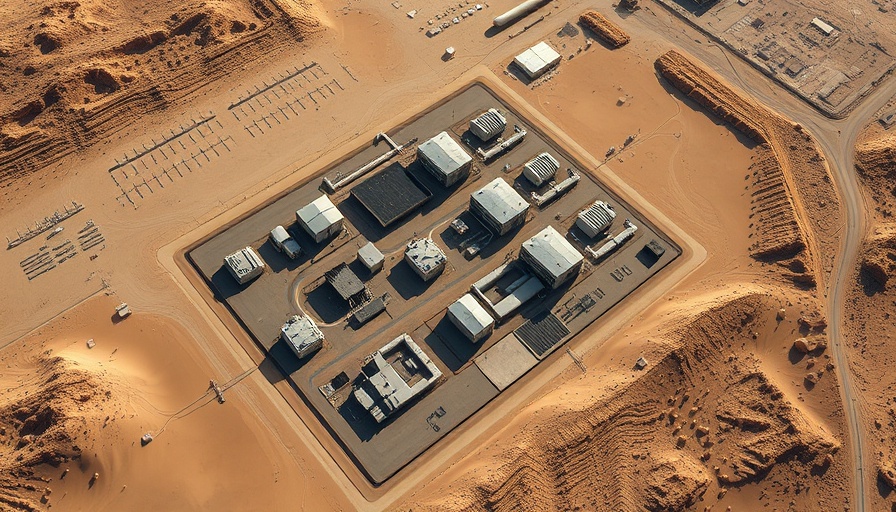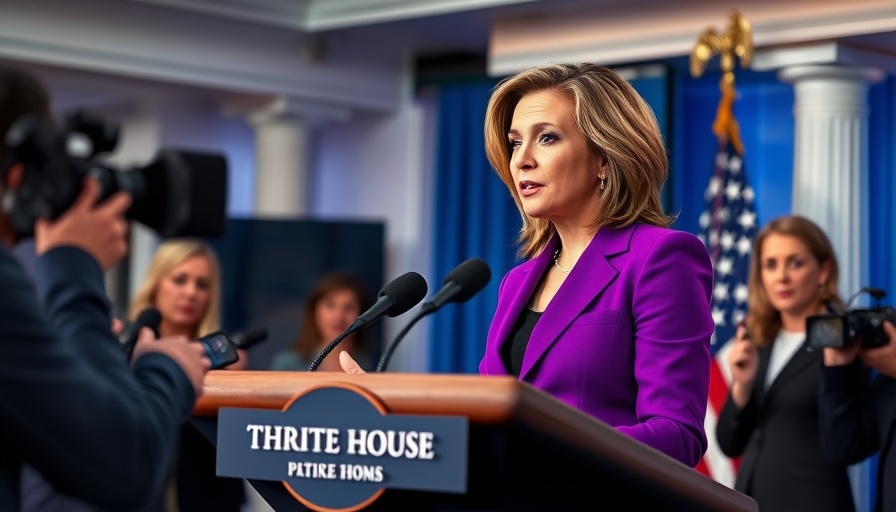
In the Crosshairs: Iran's Nuclear Aspirations
As tensions in the Middle East continue to simmer, the prospect of Iran pursuing a covert nuclear weapons program remains a critical concern for regional stability and global security. Unlike past nations that have successfully developed nuclear capabilities under the radar, Iran finds itself in a precarious situation where its actions are continually scrutinized. The assassination of Mohsen Fakhrizadeh, a pivotal figure in Iran's nuclear ambitions, underscores how Israel’s intelligence operations have penetrated Iran’s defenses, making it immensely challenging for Tehran to pursue nuclear objectives without detection.
The Lessons of History
Historically, Iran attempted to build a nuclear weapon in secret, starting over two decades ago. This clandestine project, known as Project Amad, was disrupted when satellite images revealed key nuclear sites in Natanz and Arak. The revelation forced Iran to publicly deny these activities, asserting that their nuclear program was geared towards peaceful purposes. However, archival documents seized by Israeli intelligence confirm plans to develop multiple nuclear weapons, which add complexity to the narrative around Iran’s nuclear intentions.
Israel's Intelligence Edge
Despite Iran's desire to maintain secrecy over any potential nuclear program, Israel's intelligence capabilities have proven remarkably effective. Experts emphasize that Israel maintains a tactical advantage, claiming “intelligence dominance” over Iran. Marc Polymeropoulos, a former CIA officer, highlights that if Israel perceives a nuclear threat emerging from Iran, it will act—whether through military strikes or covert operations. This persistent threat complicates Iran's strategy and puts immense pressure on its leaders to reconsider their approach amidst mounting external challenges.
Future Predictions: The Path Forward?
The landscape of Iran’s nuclear aspirations raises critical questions about its future direction. Experts suggest that Iran may likely face three options: fully comply with international regulations, negotiate with the U.S. to lift sanctions and limit nuclear developments, or covertly advance its nuclear weapons project while risking direct military confrontation. Each pathway carries significant consequences not only for Iran but for the entire geopolitical climate.
The Stakes for Global Security
The potential of Iran acquiring nuclear weapons reshapes the security dynamics in the Middle East. The repercussions could lead to an arms race involving neighboring countries, as nations like Saudi Arabia and Turkey might feel compelled to pursue their own nuclear capabilities as a counterbalance. Furthermore, a nuclear-armed Iran could embolden aggressive policies in the region, destabilizing already fragile nations and elevating risks of conflict.
Insights for Relevant Stakeholders
For policymakers and analysts, understanding Iran’s nuclear dilemma is crucial. Real strategic choices lie ahead, which can influence diplomatic negotiations, military readiness, and economic strategies targeting Iran. Ultimately, the determination of how Iran navigates its nuclear ambitions will shape the broader geopolitical landscape for years to come.
Conclusion: The Call for Continued Vigilance
The situation remains fluid, and observers urge continued vigilance regarding Iran's nuclear activities. As we stand at this crossroads, major stakeholders—from world powers to local actors in the region—must engage in proactive dialogues to address and mitigate potential threats posed by Iran’s ambitions. Understanding both the overt and covert dimensions of Iran’s nuclear program will be essential in crafting effective policies that ensure long-term stability.
 Add Row
Add Row  Add
Add 




Write A Comment